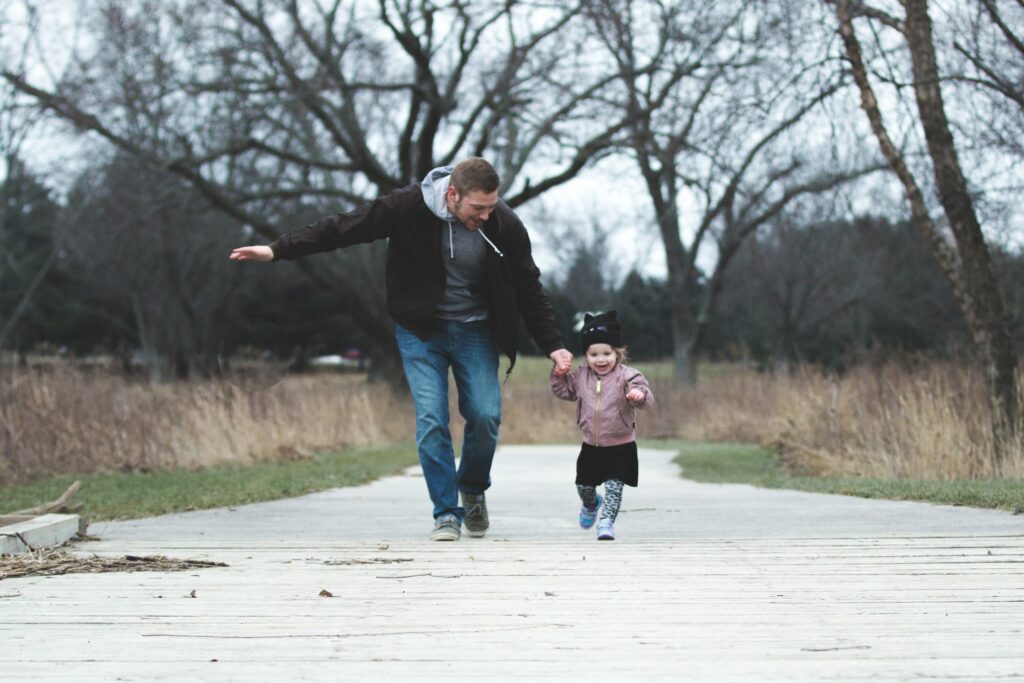In couples therapy sessions, I hear a lot about what is on people’s minds and I can sense that most of us are feeling a bit stressed these days.
Whether we fear global issues like climate change, world war, recession or personal issues like our health, elderly parents, credit card debt… we’ve all got something to worry about.
And, hey, it makes sense. These are all valid things to be concerned with.
I don’t have a get rich quick scheme for you or a solution for world peace, but I do have a few insights about what happens when we get stressed.
To make my point, let’s time travel back to childhood for a moment.
When we are kids, we learn to deal with the stress of our environment in specific ways. We seek to protect ourself from threats and do our best to make sure our fears don’t come true. Overtime, we figure out what works for us and what doesn’t. Then, decades later as adults, we use these same strategies that worked for us as kids.
Part of our brain thinks these strategies work, but they don’t. They are immature, old tactics that are ineffective in adult romantic relationships. This is why I like to say “our childhood adaptations become our adult problems.”
In order to give an example, I want to mention that there are only TWO default communication styles that people use to manage their stress and anxiety.
These are minimizing and maximizing.
The minimizer tends to get defensive, avoids talking about things, keeps their feelings to themselves and doesn’t ask for help from others.
The maximizer tends to get offensive, wants to talk about everything, exaggerates their feelings and looks for guidance from others.
Sound familiar?
Let me give you an example:
When Maximizers sense a relationship issue, they expand it and move outward, seeking answers and support. Whereas Minimizers shrink the issue and move inward. They just want to move on and sweep it under the rug.
And these are both strategies learned in childhood to manage fear and anxiety. Though the problem is: both partners tend to think the other person should be “more like me…”
The Maximizer wants the Minimizer to lean in and make more of an effort. The Minimizer wants the Maximizer to relax and drop the subject. And they’ll often shame each other or put each other down to prove their point, which yields disaster.
BOTH partners must take a new approach.
The Maximizer needs to realize the Minimizer is afraid—afraid of not feeling safe or OK as they are.
And the Minimizer needs to realize their partner’s request for therapy or change isn’t a threat to their worth, safety, or identity.
Change happens when BOTH partners realize this core tension is an opportunity for healing and growth. To put clashing, unresolved issues to rest. To let go of fixed positions. To hold space for our partner’s reality, even if we don’t understand or agree with it, or we think it’s wrong.
Every person that I work with discovers that they are a minimizer or a maximizer and that they developed this style in childhood to protect themselves from certain outcomes.
Beyond recognizing their own pattern, they notice that their romantic partner uses the opposite style and these ways of communicating often lead to misunderstandings and conflict.
The challenge is that what worked for us as kids, doesn’t work so well as adults. We need to learn a new way.
My mentor likes to say “We need to learn to talk to each other without pissing each other off.”
I couldn’t agree more.
We all have an opportunity to inquire as to how we can do that. How can we show up in our relationship in a way that increases the chances that our partner can hear us?
Can we show up in a way that might inspire or invite our partner to ask similar questions?
When we are dealing with stress in our life, how can we communicate more clearly about what we need instead of getting offensive or defensive?
The long-term goal would be to create a dynamic where you become allies in each other’s healing and growth. Most of us haven’t experienced this because our parents never showed us and no one else taught us how.
It hasn’t always been easy for my partner and I, but with some hard work and regular practice, we have made A LOT of progress. And that gives us a sense of fulfilment and satisfaction.
In life and love, when we aren’t making progress and we feel totally stuck, things start to feel really heavy, really quick. So, if you are there, I feel you.
The good news is that it doesn’t have to be this way forever and it can only be temporary. But, if you want to make a change, it will require you to take a new action step and try something you haven’t tried before.
For those of you looking for support, I’d recommend checking out my new program Romantic Relationship Reset.
If you are looking for couples therapy, I am available for coaching sessions hosted over Zoom.



